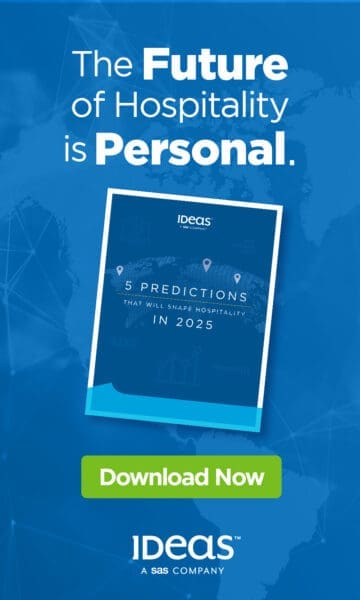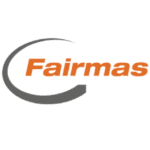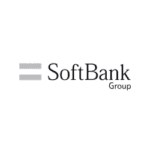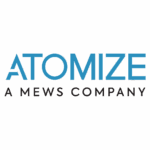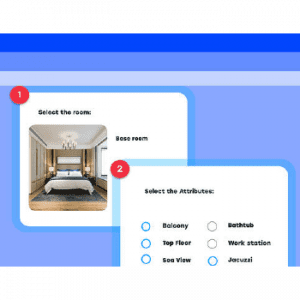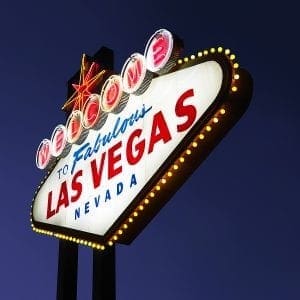 The Las Vegas strip was the leading commercial casino market in the U.S. in 2019, generating nearly $7 billion in revenue. However, its appeal for domestic and international tourism goes beyond gambling. As a top destination for shopping, fine dining, entertainment, and nightlife, Las Vegas has drawn interest around how it’s rebounding from the impacts of COVID-19.
The Las Vegas strip was the leading commercial casino market in the U.S. in 2019, generating nearly $7 billion in revenue. However, its appeal for domestic and international tourism goes beyond gambling. As a top destination for shopping, fine dining, entertainment, and nightlife, Las Vegas has drawn interest around how it’s rebounding from the impacts of COVID-19.
The Las Vegas travel industry is navigating the complexities and uncertainties of the constantly evolving COVID-19 landscape, managing the unpredictable flow of openings and shutdowns of the city’s most prominent establishments and identifying new pockets of demand to help keep them afloat wherever possible. Spurring industry recovery takes collaboration, partnership, and a unified approach with all stakeholders across the ecosystem – from lodging providers to online travel agencies, to destination marketing organizations (DMOs) and attraction providers, among others. This has been especially true for Las Vegas, which has leaned into partnerships, technology, and data to help support recovery strategies.
Hotels have been among those hit the hardest during the pandemic. According to research, for the week of March 8-14, 2020, U.S. hotel occupancy was down 24.4% to 53% year-over-year, with Las Vegas occupancy down by 39.8%. On March 17, Nevada’s governor ordered a month-long closure of casinos and other non-essential businesses such as bars, movie theaters and gyms and restaurants, severely impacting the city. World-famous hotels, casinos and entertainment venues closed their doors. Since then, the city has been on a rollercoaster of volatile demand.
Research from Las Vegas-area tourism officials shows that in June, while the number of visitors was down, some hotels and casinos were seeing small pockets of domestic travelers eager to travel following months of lockdown. Expedia Group data showed that searches in the end of July to mid-August (July 20 – August 16) were up by an average of 30% week-on-week, for trips between August and October 2020. Almost all searches for trips to the destination came from domestic travelers, reflecting the U.S. border restrictions for international travelers. Top domestic inbound markets included travelers from L.A., followed by Las Vegas, Philadelphia, Atlanta, Chicago, Houston and Anaheim, but all with a share of under 5%, indicating demand was widespread across various parts of the nation.
The type of traveler is also evolving. According to the Review Journal and Gambling News, many of the local and Strip casinos have seen a younger, high-spending demographic of travelers who tend to stay longer and, more importantly, spend more while they’re there. It’s thought this younger guest is probably a mix of local and drive-in customers who are viewing Las Vegas resorts as an affordable trip during the pandemic. Executives are advising local businesses to capitalize on this new guest now by offering promotions and incentives that target this specific group, with a longer-term plan of trying to build loyalty amongst them to ensure repeat customers after the pandemic ends. Casinos and hotels can lean into their partners’ digital capabilities and insights to help them understand their guests and where they’re coming from in order to tailor promotions to capture demand efficiently during the pandemic. For example, Expedia Group developed a new free online data insights tool for its lodging partners, and a new feature that allows partners to highlight the health and hygiene measures they are taking at their properties, such as hand sanitizer included in all rooms, enhanced cleaning, and social distancing measures, on their sites.
Daniel Wathen, Director of Market Management at Expedia Group for Las Vegas, says: “It’s been an incredibly turbulent few months for Las Vegas. Peaks and troughs of traveler demand has been non-linear and unpredictable. Hotel, resorts and casino owners and managers have done well to adapt to the volatility of the market and to serve domestic travelers where possible. Las Vegas is one of the world’s top destinations and we know the ride has been tough. We’re working hard to ensure our lodging partners are supported such as by providing local demand trends and insights, and we are in constant communication with other local players in the tourism industry to attract demand and facilitate travel however we can during these difficult months.”
So how else are hotels and resorts weathering the storm? Many are tapping into technology, allowing them to stay informed and flexible in a constantly changing environment, and are also getting creative in their recovery strategies and campaigns.
One example of this is seen with MGM Resorts International, who has sought creative ways to reposition itself over the course of the pandemic, such as via its Viva Las Office promotion, which encourages remote workers to trade in their home office for a hotel room office.
MGM Resorts also serves as an example of industry partnership, and how leaning into digital strategies can increase efficiency and deepen understanding of the market. Working with Expedia Group as part of the company’s partner recovery program, they were given various levels of assistance, including access to real-time, proprietary data to track demand trends, helping inform the resorts’ ongoing recovery strategies. Through this data, MGM Resorts can better understand when demand will return to the market and identify where demand will come from. The two brands have a long history of collaboration, including incorporating technology solutions to help drive business results.
“Our partnership with Expedia Group has been instrumental in helping us identify travel trends and adjust booking strategies during these challenging times,” said Lee Ann Benavidez, MGM Resorts International’s Vice President of Distribution Partnerships & Transient Sales Strategy.
Las Vegas lodging providers are constantly reevaluating their marketing strategies to align with the changing landscape. The STRAT Hotel uses TravelAds, a sponsored listing product from Expedia Group Media Solutions, in their recovery strategy, focusing on increasing brand awareness of their “Golden Commitment” to guest health and safety as well as driving additional occupancy. With the focus on high placement and conversion, the click through rate has continued to be strong, while conversion increased.
“Since we have used TravelAds in the past, we knew it worked so we wanted to ensure it had a strong role in our recovery strategy. We also knew that customized ad copy would be important during this time to call out key things to our guests during this interesting time,” Corporate Director of Revenue Management Robert Bunker said. “We also saw our clicks stay consistent with what we were seeing pre-COVID-19 Q1 2020.”
The Las Vegas Convention and Visitors Authority (LVCVA) is no stranger to the constantly changing landscape, identifying through data when and how to best encourage and welcome back visitors. Partnering with Expedia Group Media Solutions, the LVCVA launched a recovery campaign at the end of May letting travelers from nearby drive markets and top fly markets, such as Phoenix, Los Angeles, San Diego, Houston, Dallas, Atlanta, San Francisco, Denver and Seattle, know that the city is open to visitors, using imagery and copy that highlights social distancing and safe activities.
The LVCVA has evolved its campaign strategy based not only on campaign learnings, but also from available data across the Expedia Group portfolio of brands, providing insights into current traveler behavior. The ability to quickly turn the campaign on and off is critical, given the changing guidelines in Las Vegas as well as COVID-19 travel restrictions and quarantine mandates from other regions.
“This unprecedented year has dealt Las Vegas steep and unexpected challenges,” said Fletch Brunelle, vice president of marketing for the Las Vegas Convention and Visitors Authority. “As a research-based organization, we spend a lot of time learning who our visitors are, where they are coming from and what they want out of their trip to Las Vegas. For the destination to be able to reopen successfully, it’s imperative that we apply these learnings to our media strategy and effectively reach those who are starting to plan their travel.”
The campaign has delivered a strong return on ad spend (ROAS) and steady improvements week-over-week, whereas many other markets saw a big dip in demand in July due to a second wave of cases. Las Vegas was one of the top booked domestic destinations across the Expedia Group platform in July, with market share seeing double digit growth in recovery against its competitive set.
Las Vegas hotels and attractions are also working on a co-op destination recovery campaign with Expedia Group Media Solutions for later this year.
It’s clear that in addition to local partnerships, a common theme throughout the road to recovery is technology and data. Data plays a key role in informing strategies, helping travel companies understand when and where they need to adapt, shift their approach, or pause external efforts. Las Vegas travel partners are leveraging proprietary Expedia Group data to understand where the demand is coming from so they can better track trends, traveler behavior and intent, so they can best connect with travelers and capture demand, when the time is right, to rebound from this global crisis.
It will continue to be a rocky road ahead for the starlit city, but a combination of understanding new traveler trends through intelligent data, working creatively and collaboratively with multiple local industry players towards a common goal, and using digital strategies to attract the right guests, means there’s a glimmer of casino-floor light at the end of the tunnel for Las Vegas.







